|
Cummulative Tributes from Newton's Friends
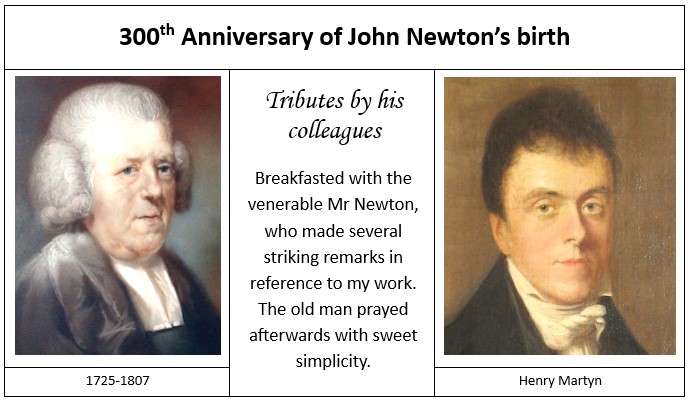 |
|
Henry Martyn (1781-1812), curate to Charles Simeon, went to Bengal as a chaplain of the East India Company. He translated the New Testament and Psalms into Persian and the New Testament into Arabic and Urdu. Martyn died in Turkey of a fever just 6 years after arriving in India. |
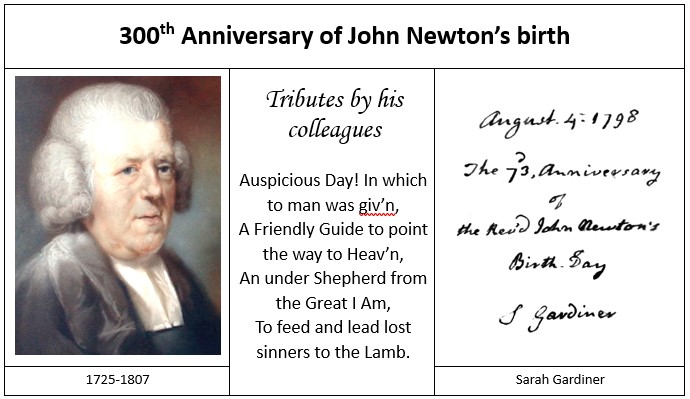 |
|
Mrs Sarah Gardiner of Sleaford in Lincolnshire, Newton’s correspondent and friend, who became the mother-in-law of Newton’s nephew Benjamin Nind jnr. Sarah penned this tribute for Newton’s 73rd birthday. |
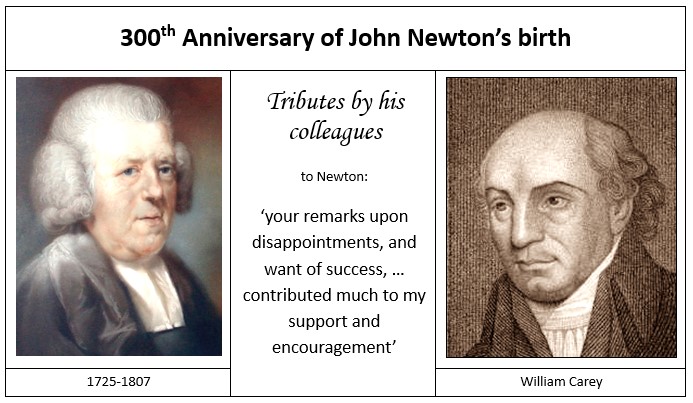 |
|
William Carey (1761-1834), pioneer Baptist missionary to India, first called on Newton for advice. Newton immediately wrote to introduce him to William Wilberforce, requesting ‘if you could afford him a short audience, you could perhaps give him such advice in a quarter of an hour, as might put him in a right path, and be useful to him through life.’ More on Carey here. |
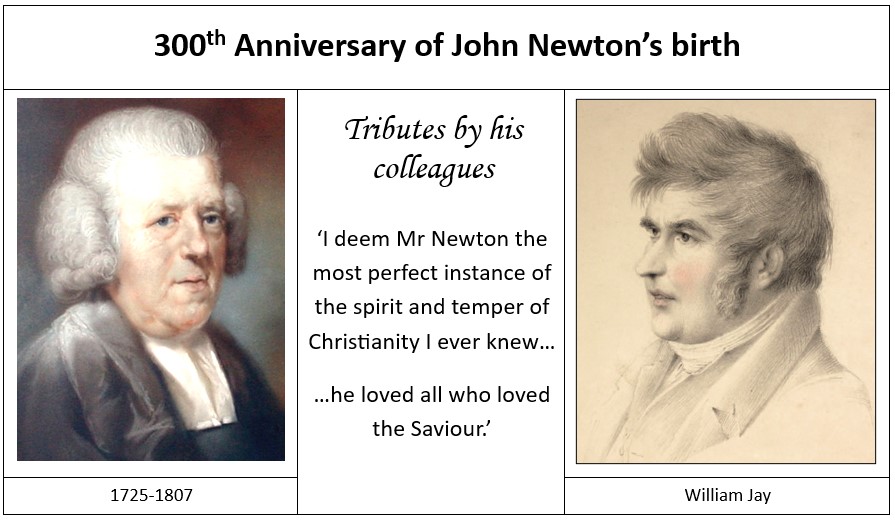 |
|
William Jay (1769-1853), Independent Minister of Argyle Chapel, Bath, for 62 years. Newton counselled the 19-year old after his first sermon in London, and Jay never forgot ‘the kindness with which he addressed me’. He became one of the foremost dissenting preachers of his day. Download Jay's biography of Newton. |
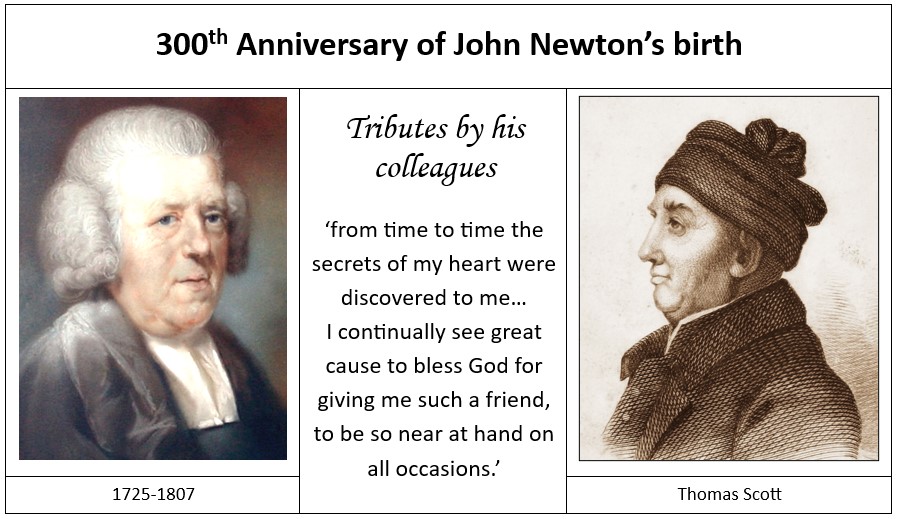 |
|
Thomas Scott (1747-1821), minister in the adjacent village of Weston Underwood, was converted through the patient friendship and prayers of Newton. He asked Newton to edit his narrative The Force of Truth. Scott’s Bible Commentary was highly respected. |
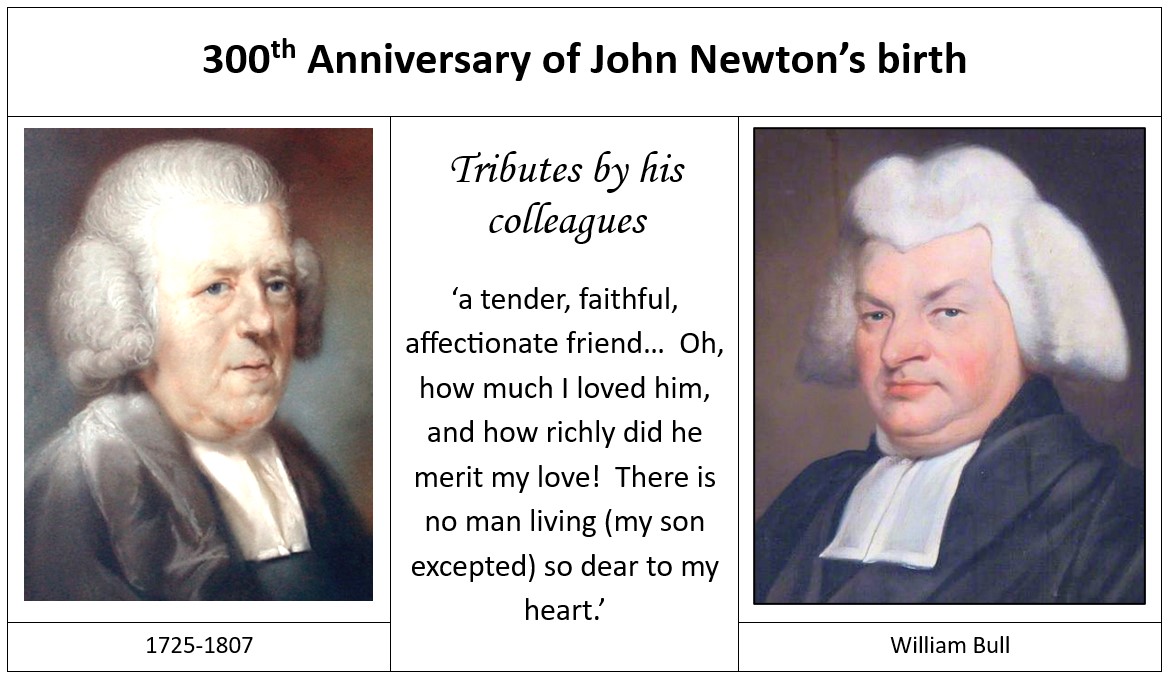 |
|
William Bull (1738–1814) was an Independent minister in the nearby town of Newport Pagnell. He and Newton maintained a lively correspondence, punctuated by valued visits to each other. When Newton moved to London he wrote a curriculum for Bull's Academy. |
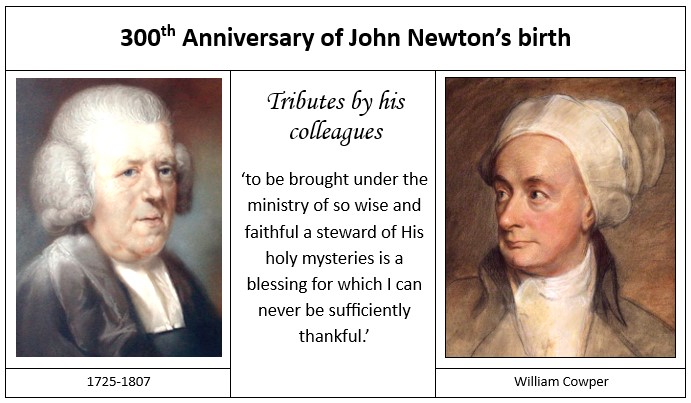 |
|
William Cowper (1731–1800) recovered from suicidal depression when he was converted. He moved to Olney in 1767 where he and Newton became close friends. Their hymns were published in 1779 as Olney Hymns. Cowper later became known as a poet |
|
|
|
|